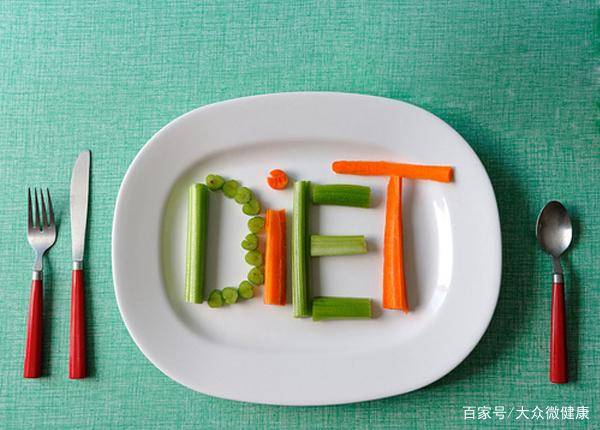Because there were many feasts during the Spring Festival, many friends are currently trying to lose weight. Some friends privately messaged the public micro-healthy account asking, “We often hear about the benefits of intermittent fasting. What is your take on this issue? Today, let’s discuss it with everyone.”
1. What is intermittent fasting?
Intermittent fasting is different from fasting or dieting. Dieting involves eating less every day, whereas fasting involves not eating at all. Intermittent fasting, on the other hand, involves skipping meals occasionally.
The most common patterns are the 5+2 intermittent fasting and the 16+8 intermittent fasting.
5+2 intermittent fasting means eating normally for 5 days and eating less for two days, with men consuming 600 kcal per day and women consuming 500 kcal per day on those days.
– Example of a meal plan –
16+8 intermittent fasting involves fasting within a 16-hour window during the day, where no food is consumed, and eating is restricted to an 8-hour period. This helps reduce the number of meals consumed each day.
2. Intermittent fasting periodically can be effective for weight loss!
The essence of intermittent fasting is a reduction in total caloric intake, creating an energy deficit, which contributes to weight loss. Specifically, during intermittent fasting, the breakdown of glycogen stores in the body accelerates, leading to increased fat breakdown over time. The body starts using fat as the primary source of energy, thereby achieving weight loss.
3. Check out these 6 FAQs about intermittent fasting:
1. Can I do intermittent fasting on any days?
You can do intermittent fasting on any day as per your lifestyle. However, many people choose to do it on workdays, as weekends may involve family activities or social events that may not be conducive for intermittent fasting.
It’s important to note that if you decide to fast, it’s essential not to give up easily; otherwise, the weight loss effects will not be realized.
2. Is breakfast important?
Yes, breakfast is crucial as it marks the end of an 18-hour fasting period. Skipping breakfast can be detrimental to health, leading to stomach problems, kidney stones, and other issues. Moreover, skipping breakfast can cause low blood sugar, leading to dizziness, hunger, fatigue, which are not conducive to weight loss.
3. What to do if feeling too hungry during intermittent fasting?
Intermittent fasting requires willpower, as consuming only 500 kcal/600 kcal per day makes hunger inevitable. However, there are tips to help alleviate hunger:
– Choose high-volume, low-calorie foods (such as lettuce, cucumber, tomatoes, tofu, seaweed).
– Replace refined grains with whole grains.
– Stay hydrated by drinking 2500ml to 3000ml of water per day during intermittent fasting. Some people may mistake thirst for hunger, so drinking water can help prevent this.
– Keep busy; engaging in activities like watching movies, listening to music, chatting with friends, or walking can help distract from hunger throughout the day.
4. What to do if I overeat during a meal on an intermittent fasting day?
If you consume excess calories on an intermittent fasting day, consider reducing calorie intake slightly over the next 2-3 normal eating days. Continue with a lower-calorie intake on the next intermittent fasting day. Additionally, engaging in extra physical activity over the following days can help burn off the excess calories.
5. Is it necessary to take supplements during intermittent fasting?
Intermittent fasting is an intermittent fasting method, not a deprivation of food. As long as you maintain a balanced diet on non-fasting days, your body should receive enough nutrients from various foods to maintain health. Additional supplementation is not required unless recommended by a qualified nutritionist.
6. Can meal replacements be used to get through the initial fasting days?
The initial weeks of intermittent fasting are often the most challenging to stick to. Some people find it helpful to use commercially available meal replacements during this period to cope with hunger pangs. These meal replacements provide simple caloric calculations and can be consumed when hunger strikes. While natural foods are preferred over meal replacements, if you find them beneficial, choose those with low sugar content and adhere to the recommended calorie intake of 600 kcal for men and 500 kcal for women per day.
That’s all for today. We hope friends can share more knowledge about intermittent fasting in the comments section to benefit more people. Thank you!
References:
[1] Cui W. Nutritionist recommended intermittent fasting. Special Health, 2020, 000(003): P.67-67.
[2] Sun Z, Zhang H, Wu Y, et al. The application of intermittent fasting dietary patterns in weight management. Journal of Contemporary Medicine in China, 2020, Volume 22, Issue 1, 70-72 pages, 2020.
[3] Song H. “Intermittent fasting” should focus on scientific and appropriate fasting for health. Happy Aging, 2019, 000(002): P.26-26.
Images are from the internet.


